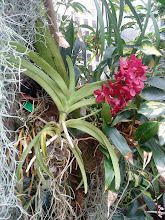
Through his young woods how pleas'd Sabinus stray'd,
Or sat delighted in the thick'ning shade
With annual joy the red'ning shoots to greet,
Or see the stretching branches long to meet!
(Alexander Pope, Epistle to Richard Boyle, Earl of Burlington: Of the Use of Riches)
This is a blog for people who like going to gardens.
I’ll come clean from the start. I don’t have a garden. I’d love to have one – one day – but, in the meantime, I like going to beautiful gardens and landscapes. This blog is especially for people who don’t have a garden or don’t do much gardening but find it invigorating to spend time in green places. If you do have a garden and are green-fingered, you’re very welcome too. You’re all very, very welcome.
I’ll be going to gardens, both alone and with friends and family. Depending on who you go with, your experience is different, of course. Alone, there’s more chance of engaging strangers in conversation. Your faith in human nature will almost certainly be restored in a lovely garden or landscape. People relax, take time, reflect on their surroundings and often communicate their pleasure with other like-minded souls. Conversation can be as easy as breathing.
With friends or family, we might head off together then go our separate ways to explore different areas before finding each other again. Someone else will point out things I’ve missed; we’ll linger in unexpected places, maybe take a few photos or videos – maybe clown around a bit or take a few arty shots too. There will definitely be a destination – tea room or pub – to round off the experience.
Magical Worlds
I’m writing this blog in the spirit of William Burroughs's 'routines' – the satirical and fantastic letters he wrote to friends from Tangiers. Burroughs told Allen Ginsberg that he needed him as a ‘receiver’ of his ‘routines’. Now that few people write letters and the virtue of their modern equivalent, emails and texts, lies in brevity, a blog seems to me to offer a space to write Burroughsesque routines. Somewhere out there, there must be receivers who’ll get this.
In these pages, we’ll visit gardens of every kind, shape and size. Along the way, there'll be a little here and there about the design and history of places; I’ve taught garden and landscape history at Birkbeck and Central St Martin’s School of Art and have written about garden design and history in Elizabeth in the Garden (Faber and Faber, 2008) and The English Garden at Night (Thames and Hudson, 2010) and for The Financial Times, The Independent, History Today and Heritage Today. Discovering the hidden stories of people and places adds another dimension to the experience of visiting a garden or landscape.
Rewind

Sunday 16 May
As children, my brothers and I were lucky to have an aunt, uncle and cousins who lived near a wood, and each year we’d visit at bluebell time. The thrill of coming across a pool of shimmering blue flowers in a clearing at the end of canopied woodland paths is as fresh a memory as if I’d just experienced it.
The excitement of exploration and the delight of having the woods to ourselves made me reluctant till now to go to a public garden or wood, feeling that it couldn’t compare with the original experience. But today I headed out. I went to Beatons Wood in Arlington, Sussex (http://bluebellwalk.co.uk). The bluebells had 'gone over', but the scent was still the most powerful perfume - making a passage of scent that wasn't just the flower but also stem and leaf. It was inexpressible freshness.

Gardengoing seems to attract a bizarre synchronicity for me. The lovely gentleman who'd urged me to see the church mentioned that the Yew Tree was a good place for a pint afterwards. So, after a quick tour of the church, it was time for a different kind of spiritual refreshment. It was half-two but the place was packed with families having Sunday lunches - it was buzzing, and the two tables and chairs for those who preferred liquid lunches were taken. I nearly thought about not staying, but the happy atmosphere and obviously sharp service changed my mind.
I sat at the bar, ordered a half pint of bitter recommended by the bar maid and read the paper. A few minutes later, the couple at the table just in front of me got up to leave, with their Labrador. I like dogs and smiled at the Labrador as its owner, the guy, went to leave. The woman passed me and then stopped -
'Of all the pubs in all the world, we meet you in here,' said my friend. They'd been on the bluebell walk too. I said I was loving the book she'd lent me about the great John Tradescant, Head Gardener to Robert Cecil, 1st Earl of Salisbury, who together created a revolutionary garden at Hatfield Palace - Philippa Gregory's Virgin Earth - because, by coincidence, a week ago, we'd been talking about Hatfield. A book of photographs of gardens at night by Linda Rutenberg, for which I'd written an introduction on Hatfield, had just come out. I'd also been talking that evening with our mutual friend, planning to go to gardens as a foursome - and there we were, all bar our mutual friend, going to the wood at Arlington on the same day. Expect to read about our adventures in future routines, d.v. (Deus voluntatis - God willing, an expression I've inherited from my aunt).
Next routine: Chelsea Flower Show, and an intriguing connection with Beatons Wood.


No comments:
Post a Comment